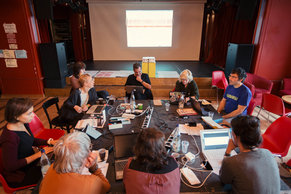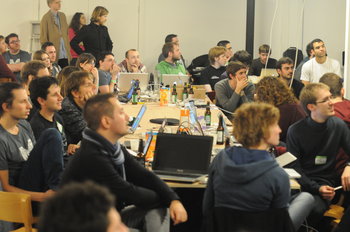
Absent Culture
An absent culture is when absences become the norm for a company, organization, team or school. This often occurs where there is a permissive stance towards absences. An absent culture can trigger a fear of missing out whereby people who do attend feel they are missing out on increased leisure time.Surrounding Culture
Absenteeism is greatly influenced by the culture surrounding an organization such as national culture and institutions such as family. For example, a culture that values collectivism and duty to one's group would tend have lower absenteeism than a culture that values individualism and freedom.Passive Aggression
Absenteeism may be used to act out against an employer or school as a passive aggressive strategy. For example, a worker who is harshly criticized resulting in a loss of face may use absenteeism to retaliate.Working Conditions
Poor working conditions can certainly create absenteeism, particularly with labor that have opportunities elsewhere such that they aren't particularly dependent on the employer. For example, hygiene factors whereby an employer fails to meet the basic expectations of an employee such as a comfortable chair.Boreout
A boreout is a situation where an individual views their job or school as soul crushingly unstimulating. Engaging employees or students in projects that are rewarding to them may completely resolve absenteeism.Social Conflict
Bullying, social conflict and intensive office politics can trigger absenteeism where people use avoidance to deal these things.Victim Mentality
Victim mentality is the unreasonable belief that one is a victim of others. This should not be confused with actually being a victim of misconduct. For example, an employee who believes they are being "bullied" after submitting low quality work that is criticized. Employers may try to avoid this type of absenteeism by looking for evidence of personal resilience in the work history and life experience of candidates.Super Talent
In some cases, the unusually talented and productive avoid duty such as attending team meetings. These individuals may use their unusual productivity as leverage over the employer such they are forgiven for absenteeism. In these cases, the employer can work to make this arrangement official so that it doesn't lead to an overall absent culture whereby an entire team starts emulating the absenteeism of a star performer.Lifestyle
It would be self-absorbed of an employer to imagine that absenteeism has everything to do with work. Some employees are pursuing life so hard that work is something of an afterthought. Likewise, employees may have difficult life situations that increase their absenteeism. For example, an employee with an unusually burdensome commute. Employees that are missing work due to lifestyle typically respond well to flexibility such as working from home if you can measure and manage their performance closely.| Overview: Absenteeism | ||
Type | ||
Definition | The habitual avoidance of work, duty or obligations without a good reason. | |
Related Concepts | ||
































